Books
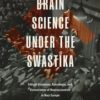
Brain Science under the Swastika: Ethical Violations, Resistance, and Victimization of Neuroscientists in Nazi Europe
By Lawrence A. Zeidman. Brain Science under the Swastika draws connections between neuroscience, patient sterilization and murder, the Holocaust, and neurological experiments and research, so that readers will be able to see the central role of neuroscience under the Nazis in a never-before presented fashion; connections and networks between killers and scientists will be illustrated….
Read more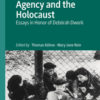
Agency and the Holocaust: Essays in Honor of Debórah Dwork
Edited by Thomas Kühne and Mary Janes Rein. The book assembles case studies on the human dimension of the Holocaust as illuminated in the academic work of preeminent Holocaust scholar Deborah Dwork, the founding director of the Strassler Center for Holocaust and Genocide Studies, home of the first doctoral program focusing solely on the Holocaust…
Read more
Weaponized Words: The Strategic Role of Persuasion in Violent Radicalization and Counter-Radicalization
By Kurt Braddock. Weaponized Words applies existing theories of persuasion to domains unique to this digital era, such as social media, YouTube, websites, and message boards to name but a few. Terrorists deploy a range of communication methods and harness reliable communication theories to create strategic messages that persuade peaceful individuals to join their groups…
Read more
Embattled Dreamlands: The Politics of Contesting Armenian, Kurdish and Turkish Memory
By David Leupold. Embattled Dreamlands explores the complex relationship between competing national myths, imagined boundaries and local memories in the threefold-contested geography referred to as Eastern Turkey, Western Armenia or Northern Kurdistan. Spatially rooted in the shatter zone of the post-Ottoman and post-Soviet space, it sheds light on the multi-layered memory landscape of the Lake Van…
Read more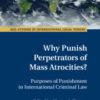
Why Punish Perpetrators of Mass Atrocities? Purposes of Punishment in International Criminal Law
Edited by Florian Jeßberger and Julia Geneuss. This edited volume provides, for the first time, a comprehensive account of theoretical approaches to international punishment. Its main objective is to contribute to the development of a consistent and robust theory of international criminal punishment. For this purpose, the authors – renowned scholars in the fields of criminal…
Read more
Aftermath of the Holocaust and Genocides
Edited by Victoria Khiterer and Erin Magee. This book illuminates unknown aspects of the aftermath of the Holocaust and genocides, and discusses trials of Holocaust and genocide perpetrators, commemoration of the victims, attempts to revive Jewish national life, and outbreaks of post-World War II anti-Semitism. It also analyzes the representation of the Holocaust and genocides…
Read more
Sharing the Burden of Stories from the Tutsi Genocide
By Anna-Marie de Beer. This book deals with literary representations of the genocide against the Tutsi in Rwanda. Its focus is a transnational, polyphonic writing project entitled Rwanda: écrire par devoir de mémoire (Rwanda: Writing by Duty of Memory), undertaken in 1998 by a group of nine African authors. Anna-Marie de Beer’s study emphasizes the Afropolitan cultural…
Read more
Voices on War and Genocide: Three Accounts of the World Wars in a Galician Town
By Omer Bartov. Taking as its point of departure Omer Bartov’s acclaimed Anatomy of a Genocide, this volume brings together previously unknown accounts by three individuals from Buczacz. These rare narratives give personal glimpses into daily life in unsettled times: a Polish headmaster during World War I, a Ukrainian teacher and witness to both Soviet and…
Read more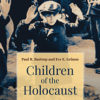
Children of the Holocaust
By Paul R. Bartrop and Eve E. Grimm. This book is a comprehensive examination of the people, ideas, movements, and events related to the experience of children during the Holocaust. They range from children who kept diaries to adults who left memoirs to others who risked (and, sometimes, lost) their lives in trying to rescue…
Read more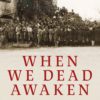
When We Dead Awaken: Australia, New Zealand, and the Armenian Genocide
By James Robins. On April 24th 1915 Armenian intellectuals of the Ottoman Empire were arrested en masse marking the beginning of the Armenian Genocide. The following day, April 25th 1915, saw the Australian and New Zealand Army Corps landing at Gallipoli. This book draws the connections between these two landmark historical events: the genocide of…
Read more
